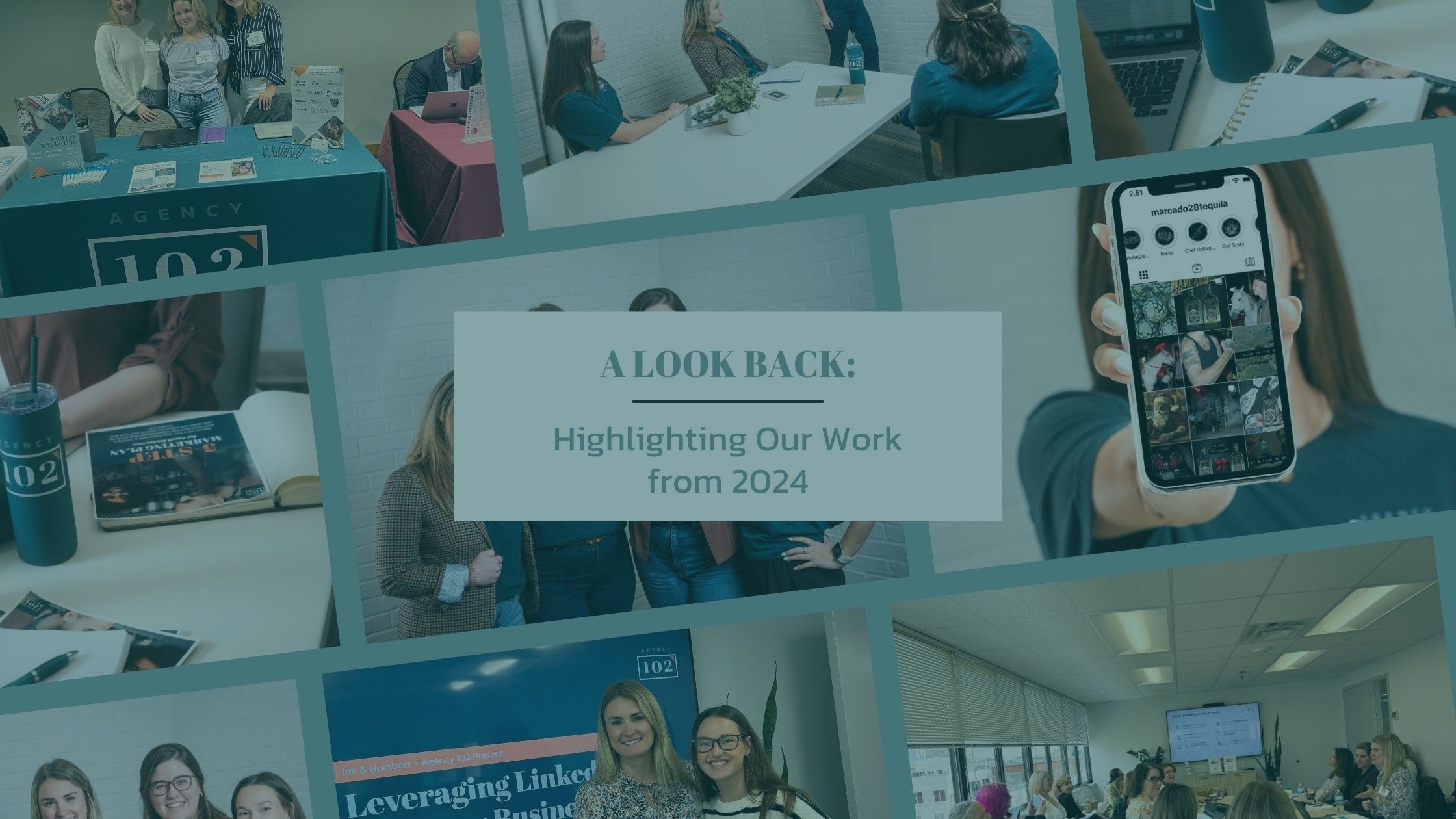
This letter is dedicated to any new business owner who is scared to follow their passion or worried about what comes next in life. As I come up to almost 3 years of quitting my job to start my own business, I’m reflecting on the journey that got me here — and got our team here — and what I wish I could’ve told myself three years ago. It’s also a reflection of the journey small business owners take, and the importance of recognizing how far you’ve come.
If you’re reading this and are starting your own journey, I wish you the best of luck. If you ever need a listening ear or someone to hash out your next idea, please shoot me a message!
Dear 2020 Hannah,
You’ve made the terrifying leap to quit your 9-to-5 day job. The cushion, the comfort, the regular paycheck are gone. You no longer have a boss or quarterly reviews or a team who sends you projects to complete.
Did you make the right decision? Will you be living on the streets in a year? Was this a big mistake?
I can tell you it is far from a mistake and that you wish you did this sooner. But you also realize you wouldn’t be where you are today without the experiences you’ve already had or the people you’ve already met. Appreciate your past as it is a vital part of your current success.
Writing to you 3 years into the future, here are 6 other pieces of wisdom I can now share with you:
It’s going to be hard. Becoming a business owner will likely be the best thing to ever happen to you. But it will also be one of the hardest things you’ll have to do in your life. Gone are the days where you just expect your payroll to be deposited every other week (rather than being responsible for putting it there) or can be blissfully unaware of the c-suite’s strategies or business plans. You are now your own safety net.
You’re going to have to learn how to be a salesperson. And an HR person. You’re going to learn how to network, how to calculate margins and forecast finances, how to apply for certifications, how to get workers’ comp, how to deal with rejections, how to have tough conversations (and in general, how to overcome your fear of confrontation). You’re going to experience the pain of making mistakes (big ones) and the responsibility of paying team members’ paychecks and health insurance and retirement plans.
You’re going to have more freedom and happiness, but you’re also going to work 12-hour days (and when you’re not actively working, you’re still thinking about work). But that’s just it: it’s not work anymore. It’s your business — your life.
You’re going to fail, a lot. And with those mistakes, come lessons. It’s all part of the journey. You’re going to make some errors and learn the importance of quality checklists and standard operating procedures. You’re going to learn what not to do when presenting a proposal to a potential client — and never do that, ever again.
You’re also going to take some really big risks — risks that cost a lot of time and money. Some pay off, and some don’t.
But in reality, you really never shy away from risks because you’ve already taken the biggest one of all by starting your own business.
You’re going to meet some really great people (and some not-so-great folks). When you become an entrepreneur, you attract like-minded people. You’re going to meet some of the most intelligent, driven, kind, and supportive people that have ever been sucked into your orbit. They are going to push you and cheer you on. And they are going to want to do anything they can to support your business.
How will you meet them? At networking events. On Linkedin. In community groups. You’re going to burst out of our comfort zone and go to events alone (gasp!) and meet people the old-fashioned way.
But you’re also going to meet some less-than-great people. Prospects who insult you and your experience. People who waste your time. People who are just focused on selling you their product without wanting to build a collaborative relationship first.
You’re going to learn how to weed out the good from the bad, and avoid giving any energy to those who don’t deserve it.
Sometimes you’ll feel really lonely. While you will add wonderful people to your network, being a business owner gets lonely. Besides your closest loved ones (shout out to your husband, Brian), people don’t really get what it means to be a business owner.
You’re not able to vent with coworkers about a frustrating situation. You can’t vent with your friends about increasing your hourly rates (how much is too much?) or how to find new clients or if AI will take over your jobs. Your family may understand that you own your own business, but don’t really get what that means (answering emails? Posting a meme on Facebook?). Don’t get me wrong: your friends and family are really proud of you — they see the exterior of your success, posts about new clients won on LinkedIn, and the new job posts suggesting your growing team. But they don’t truly know how you got there.
You’re going to get really good at being independent and driving your own success.
Everything is figure-outable. As a business owner, there are many things in your control — when you take a vacation, when you log onto your computer for the day, or when you want to have meetings (or no meetings at all) during the week. But there are also a lot of things out of your control, like whether or not the prospect will sign your proposal after nailing the sales call or if a current client is experiencing a company-wide restructuring and has to eliminate marketing.
No matter what, everything is figure-outable (thank you Marie Forleo for the inspiration). If you can’t control a situation, you can control the solution.
There are going to be some months when you wonder if you’ll be profitable or what will happen if a client doesn’t renew a contract. But there is always a solution out there — there will be more clients, more projects, and more opportunities. You just have to have the courage to keep trying.
But most importantly: you’re going to learn that success comes from helping people. What you’ve come to realize most is that success comes to you when you put others’ needs above your own. You don’t chase paychecks — you position yourself as a partner.
Instead of pursuing business by targeting companies with the most money to spend, you seek opportunities to help businesses who value what you do most. And when you do, you find ways to cater to their budgets and business models. You’ll develop affordable packages for small business owners who can’t afford marketing like corporate clients. You’ll seek partnerships with community organizations and associations so you can give back to their members. And that’s when meaningful opportunities arise — when you form relationships to help people first.
You can do this, Hannah. You are doing this. And I can’t wait to see where you are in another 3 years.
With love,
2023 Hannah



